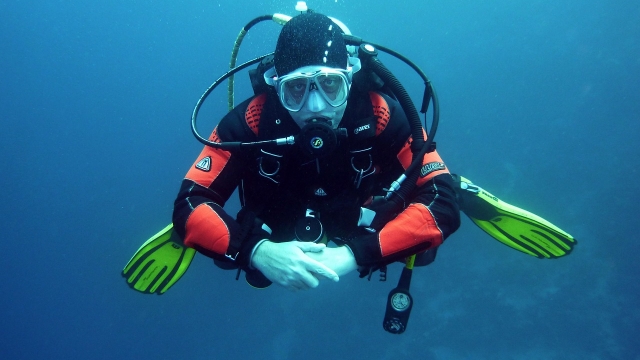Understanding Commercial Diving Equipment When comes
Joe Howard -

When it comes to commercial diving, the right equipment can mean the difference between a safe, efficient operation and a disastrous outcome. The underwater environment presents unique challenges, making it essential to use gear that is not only reliable but also suited to the specific tasks at hand. This article explores ven-tech subsea’s recommended commercial diving equipment, highlighting the must-have tools and technologies for today’s divers.
Understanding Commercial Diving Equipment
Commercial diving encompasses a wide range of activities, from underwater construction and inspection to salvage and environmental monitoring. Each task requires specialized equipment to ensure safety and efficiency. The following sections break down the essential categories of diving gear.
Diving Suits
The first line of defense for any diver is their suit. Commercial diving suits are designed to provide thermal protection and shield divers from harmful substances present underwater. There are two primary types of suits:
- Wet Suits: Ideal for warm waters, these suits allow water to enter, which is then warmed by the diver’s body heat, providing comfort in mild conditions.
- Drysuits: Best for colder environments, drysuits keep the wearer completely dry, using air to maintain warmth.
Choosing the right suit depends on the water temperature and the nature of the dive, making it crucial to select equipment tailored to specific conditions.
Diving Regulators
A diving regulator converts high-pressure air from a tank to breathable air at ambient pressure. This equipment is critical to ensure that divers can breathe comfortably and safely at different depths. There are two main types:
- Single Stage Regulators: These are simpler and often lighter, making them ideal for shallow dives.
- Two Stage Regulators: More complex and capable of operating at greater depths, they provide a steadier air supply.
Investing in high-quality regulators is essential, as they directly impact a diver’s safety and performance.
Communication Systems
Effective communication underwater can be challenging due to sound travel properties and distance. Commercial divers often rely on specialized communication systems to stay in contact with their surface team. These systems typically include:
- Hard-Wired Communication: A reliable option for deeper dives, where radio signals might fail.
- Wireless Communication: Useful for shallower dives, providing flexibility and ease of movement.
These systems enable divers to receive instructions and report back on progress, enhancing safety and operational efficiency.
Support Equipment
In addition to personal diving gear, support equipment is crucial for commercial diving operations. This includes:
Submersible Equipment
Submersible tools such as remotely operated vehicles (ROVs) or underwater drones are increasingly popular in commercial diving. They can perform inspections and gather data from otherwise inaccessible locations. Here are some examples:
- ROVs: These are unmanned submarines equipped with cameras and tools, allowing for remote exploration and work at great depths.
- Underwater Drones: Smaller than ROVs, they are often used for inspection and surveying tasks in shallow waters.
Lighting
Visibility can be severely limited underwater, making quality lighting essential. Commercial divers often use:
- LED Dive Lights: Durable and energy-efficient, these lights provide adequate illumination for inspections and operations.
- Headlamps: Mounted on the diver’s helmet, these provide hands-free lighting for detailed tasks.
Conclusion
Choosing the right commercial diving equipment is paramount to ensuring safety and efficacy in underwater operations. From suits and regulators to communication systems and support gear, each component plays a vital role in a diver’s success. For those looking to outfit their dive teams with the best equipment, be sure to explore ven-tech subsea’s recommended commercial diving equipment for top-tier options that meet industry standards.
Archives
- January 2026
- December 2025
- November 2025
- October 2025
- September 2025
- August 2025
- July 2025
- June 2025
- May 2025
- April 2025
- March 2025
- February 2025
- January 2025
- December 2024
- March 2024
- February 2024
- January 2024
- December 2023
- November 2023
- October 2023
- September 2023
- August 2023
- July 2023
- June 2023
- May 2023
- April 2023
- March 2023
- February 2023
- January 2023
- December 2022
- November 2022
- October 2022
- September 2022
- August 2022
- July 2022
- June 2022
- May 2022
- April 2022
- March 2022
- February 2022
- January 2022